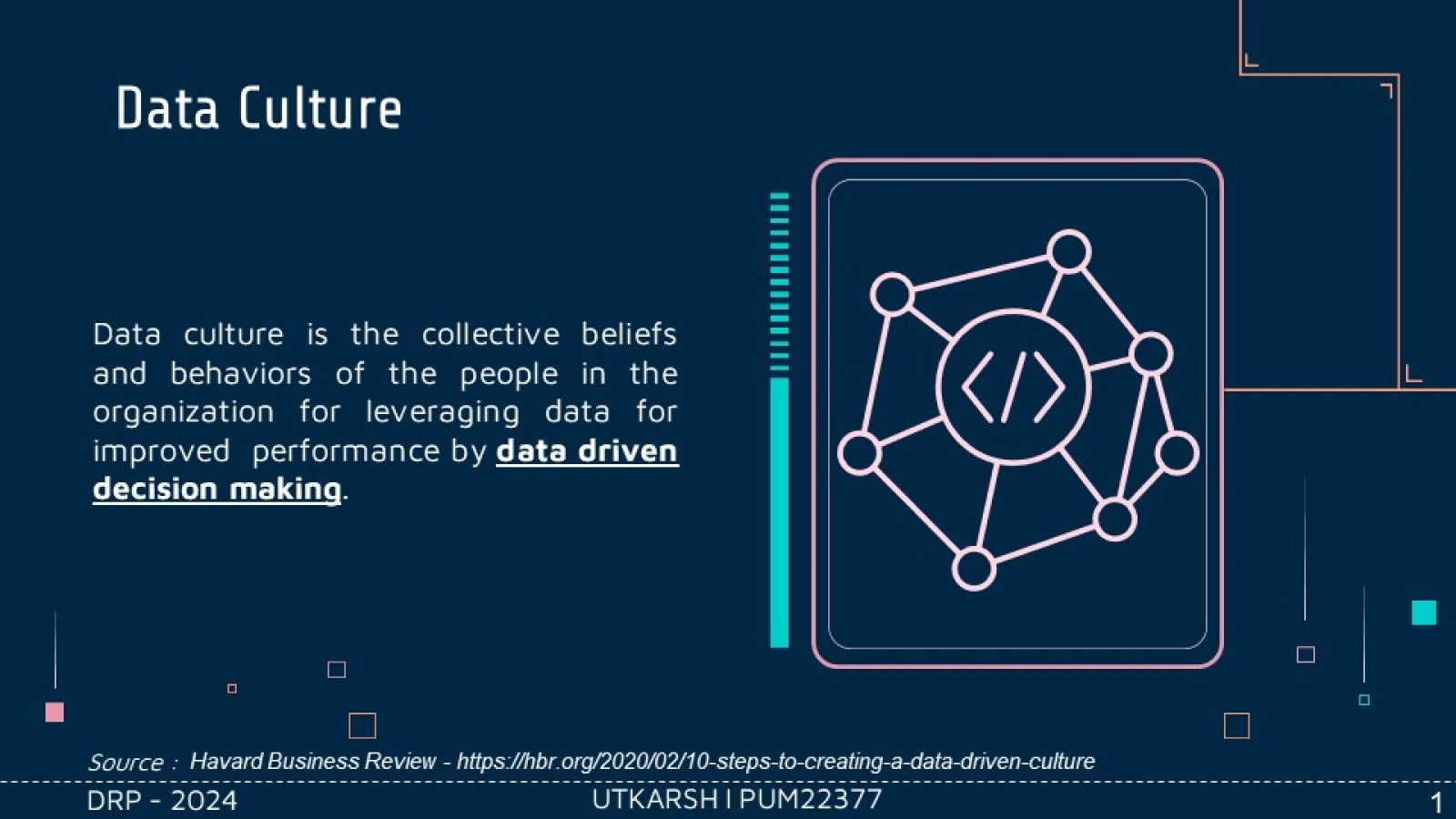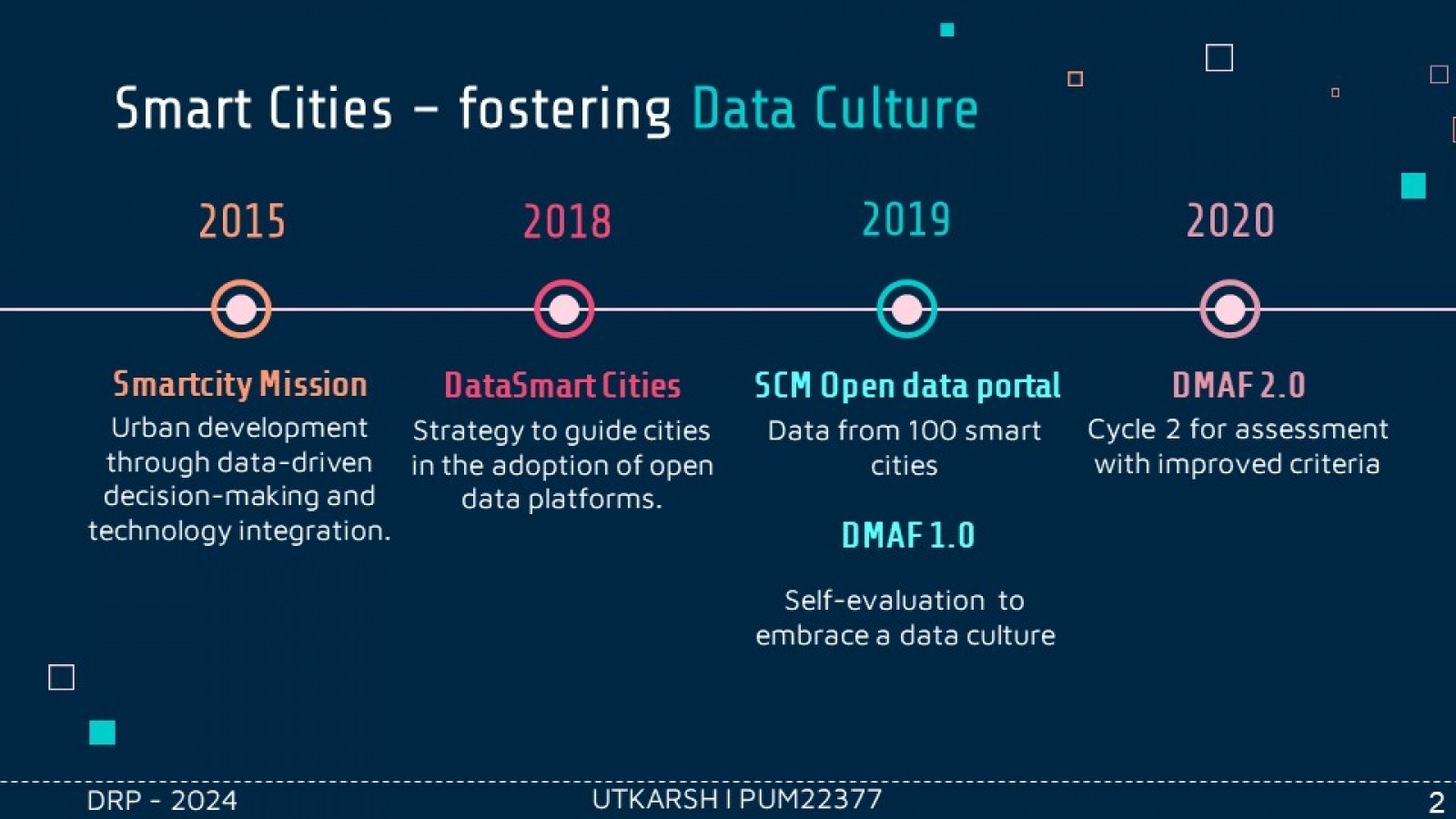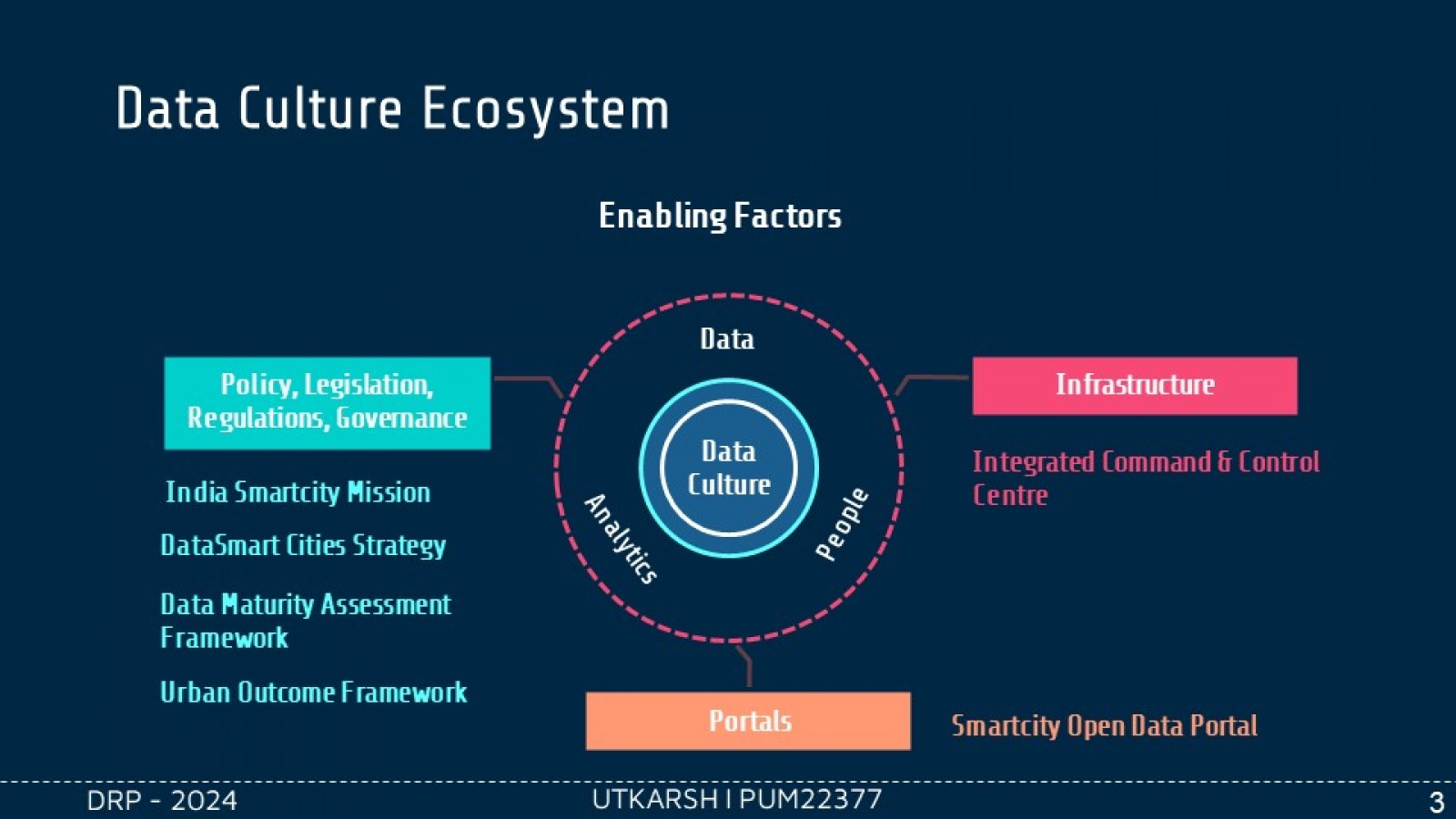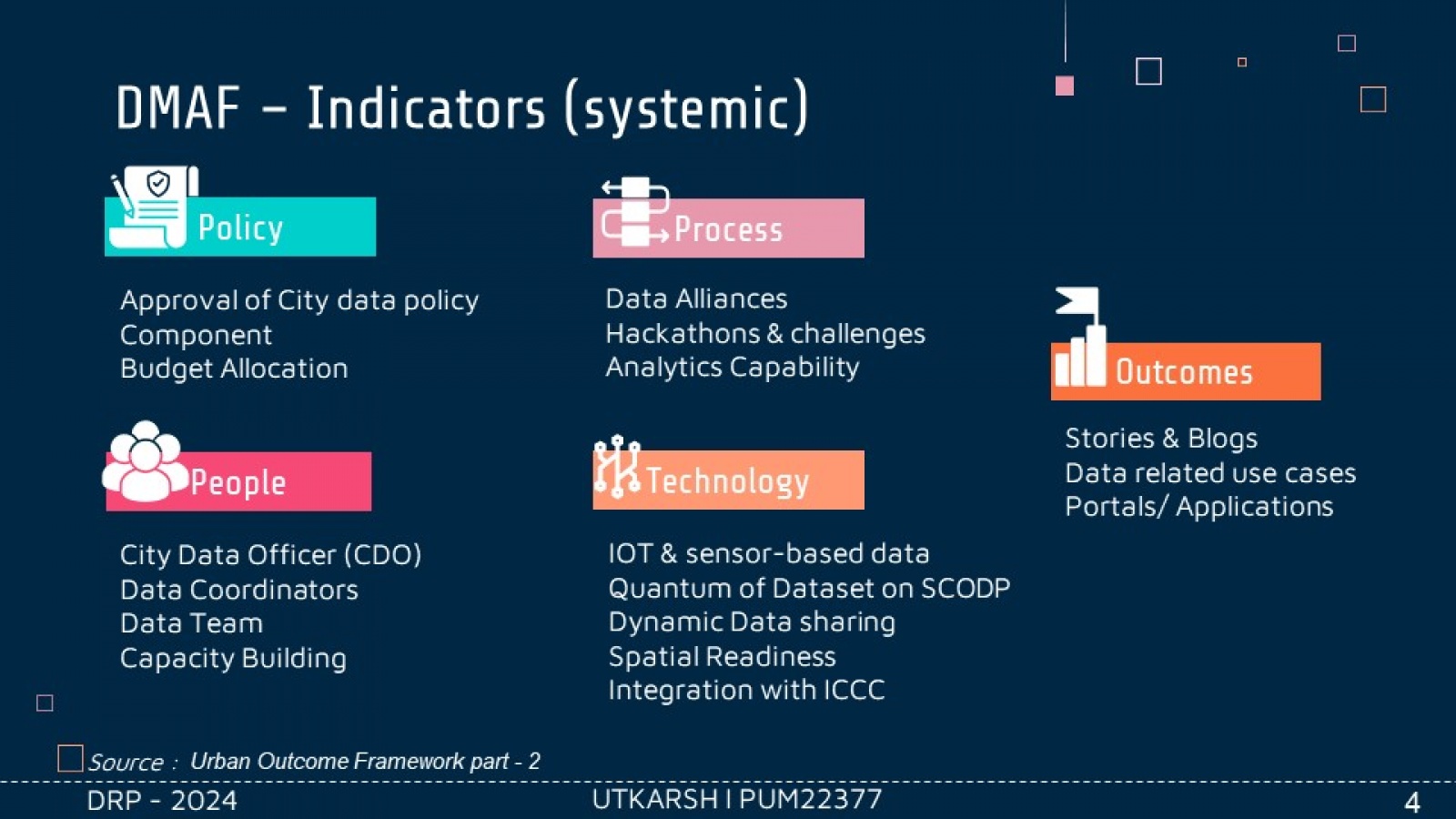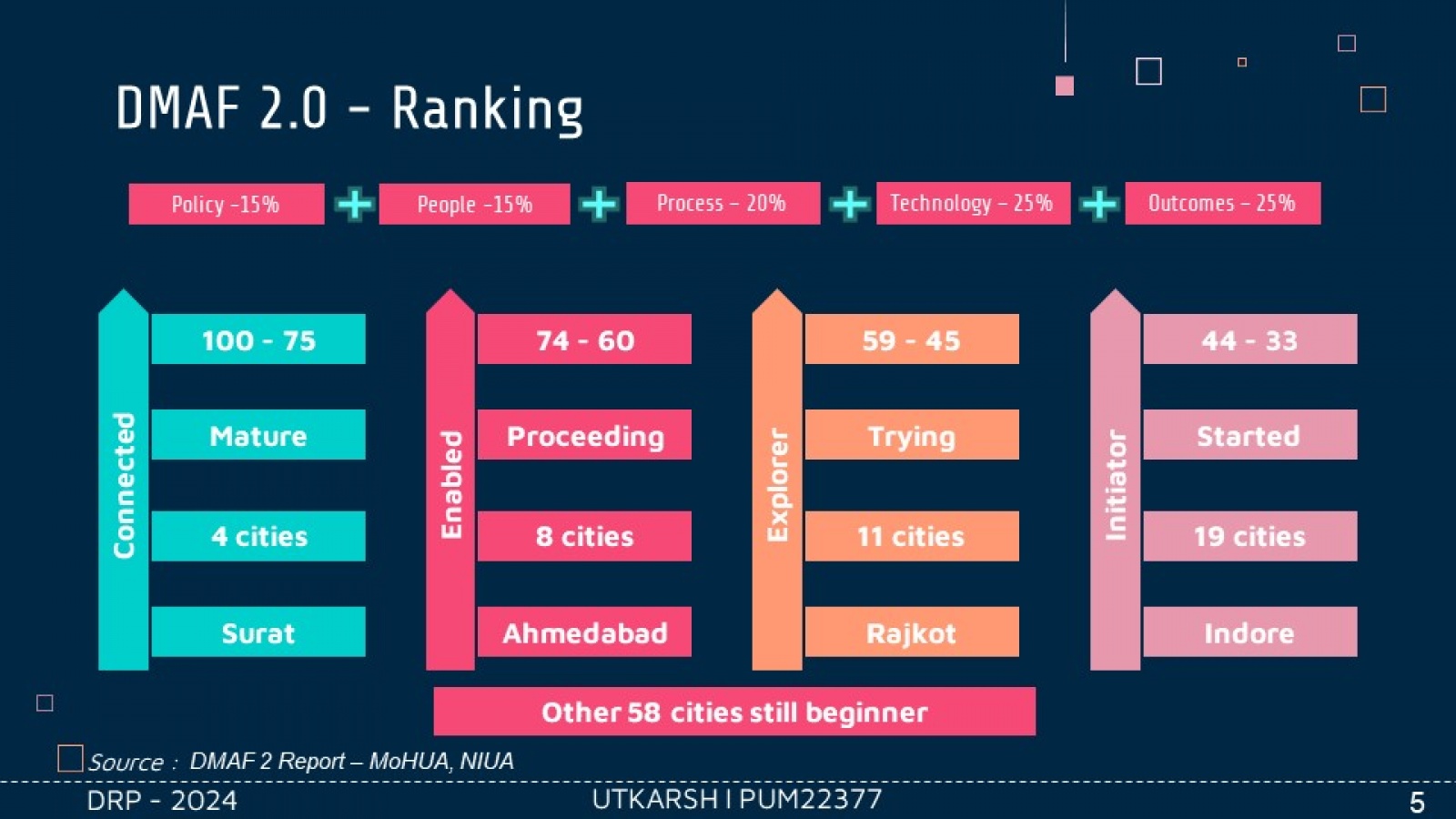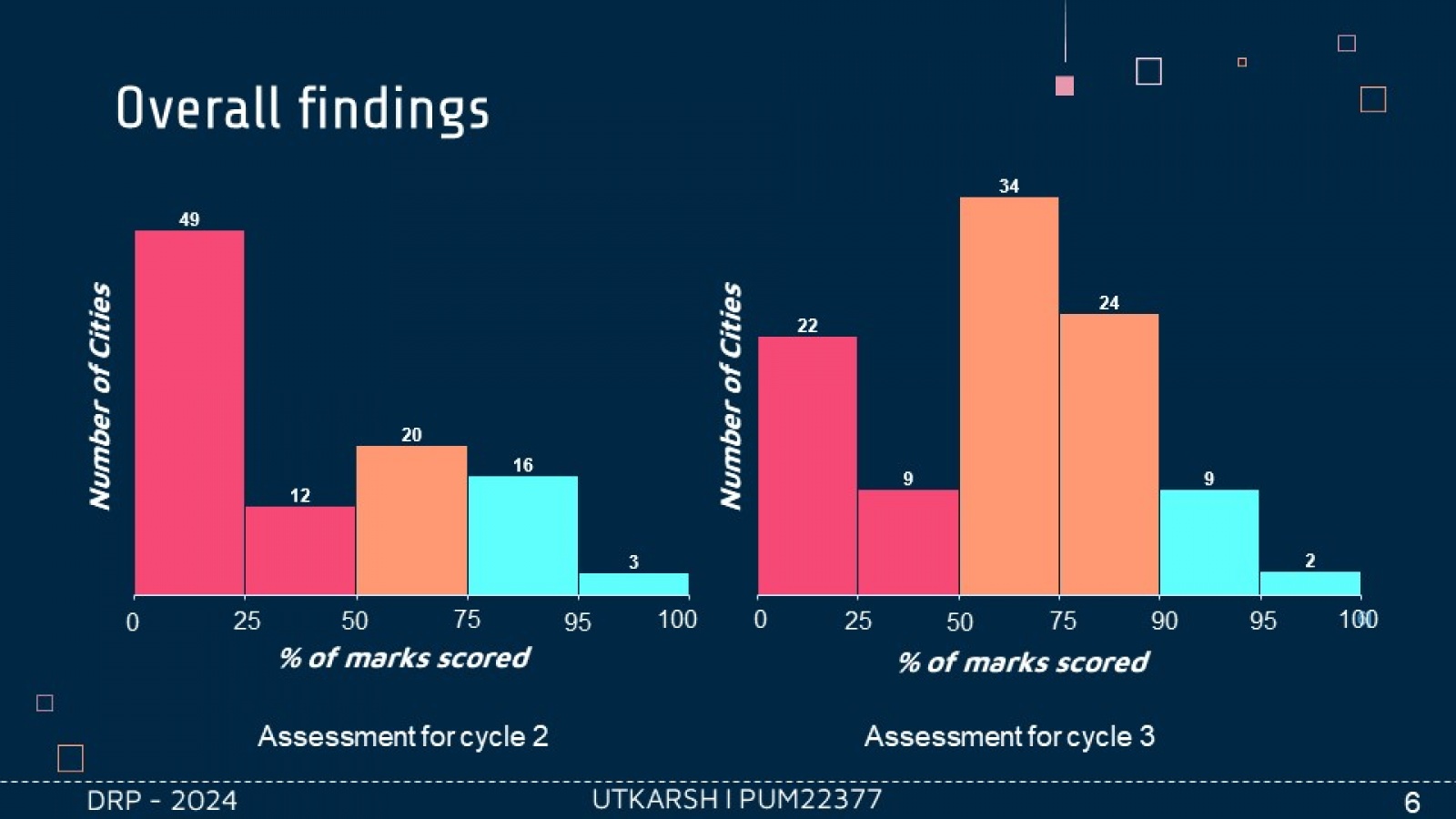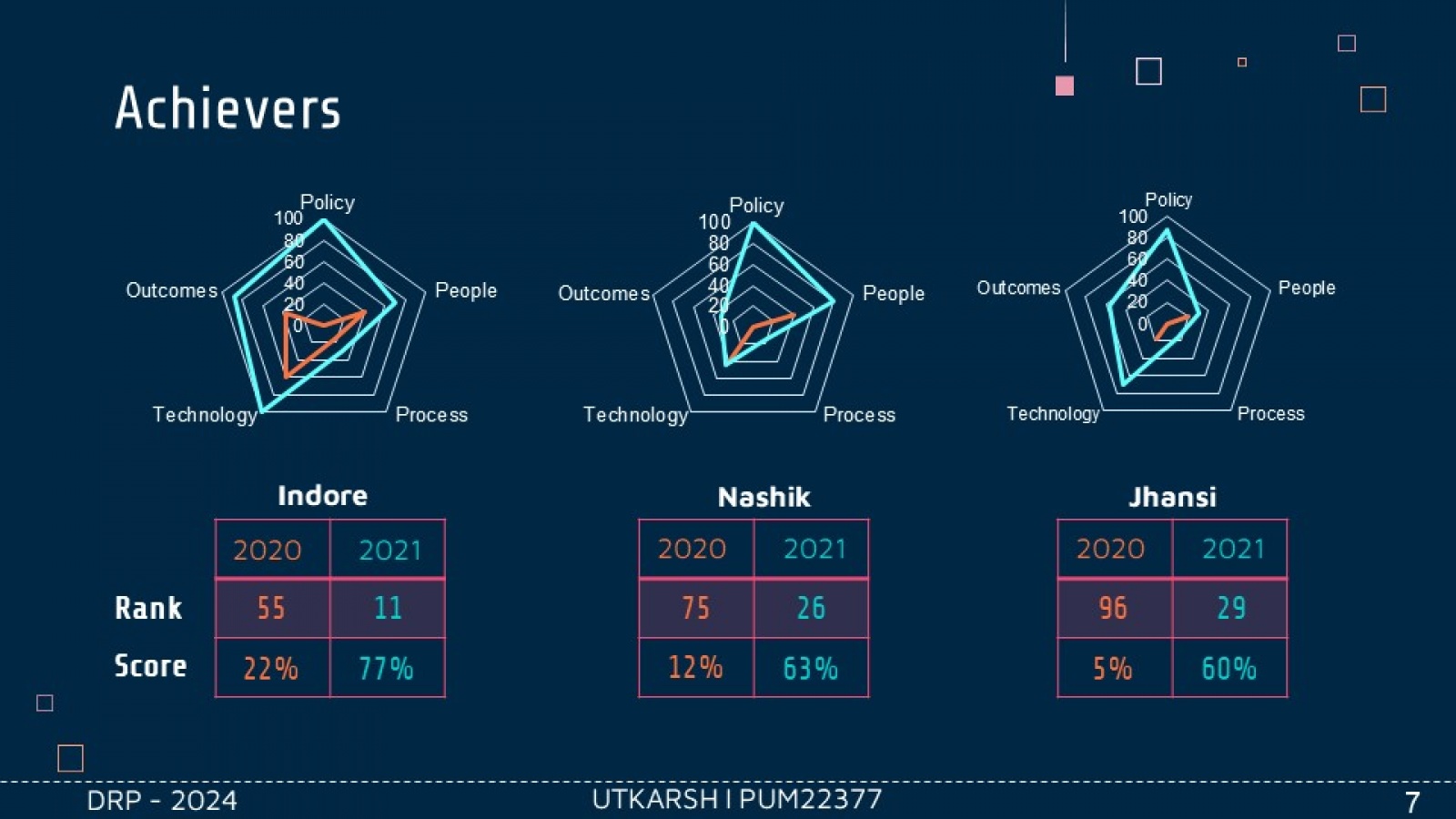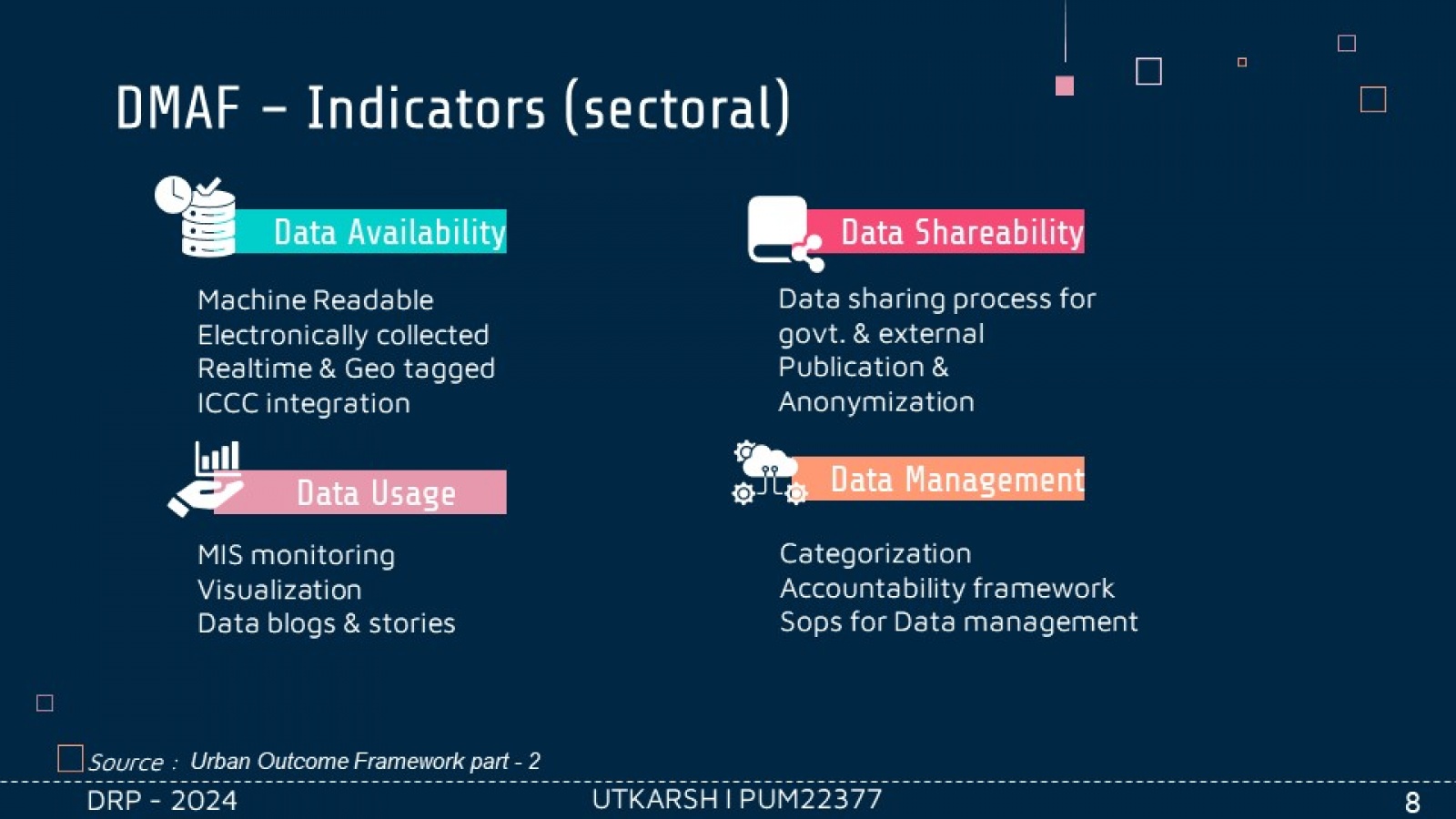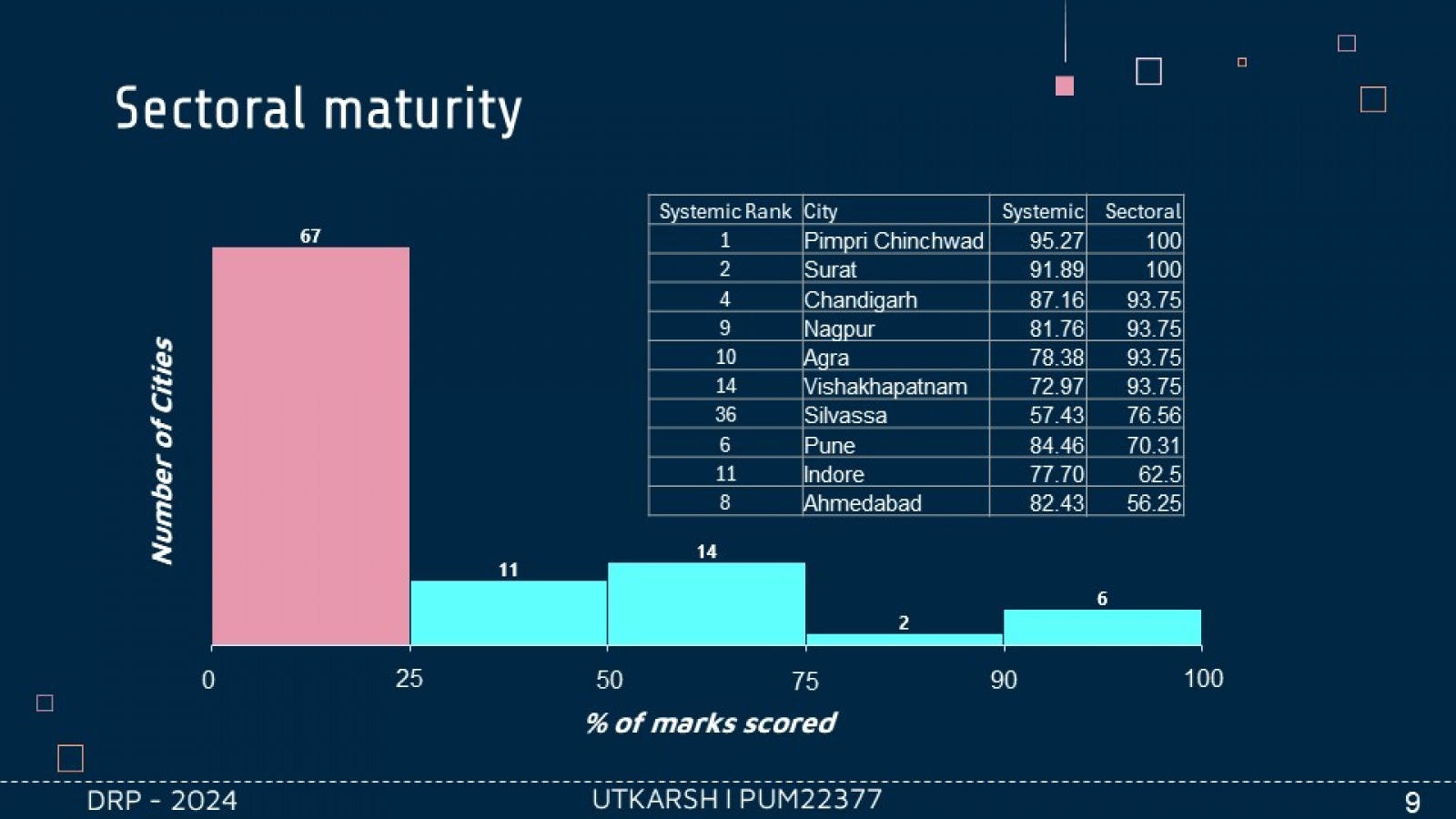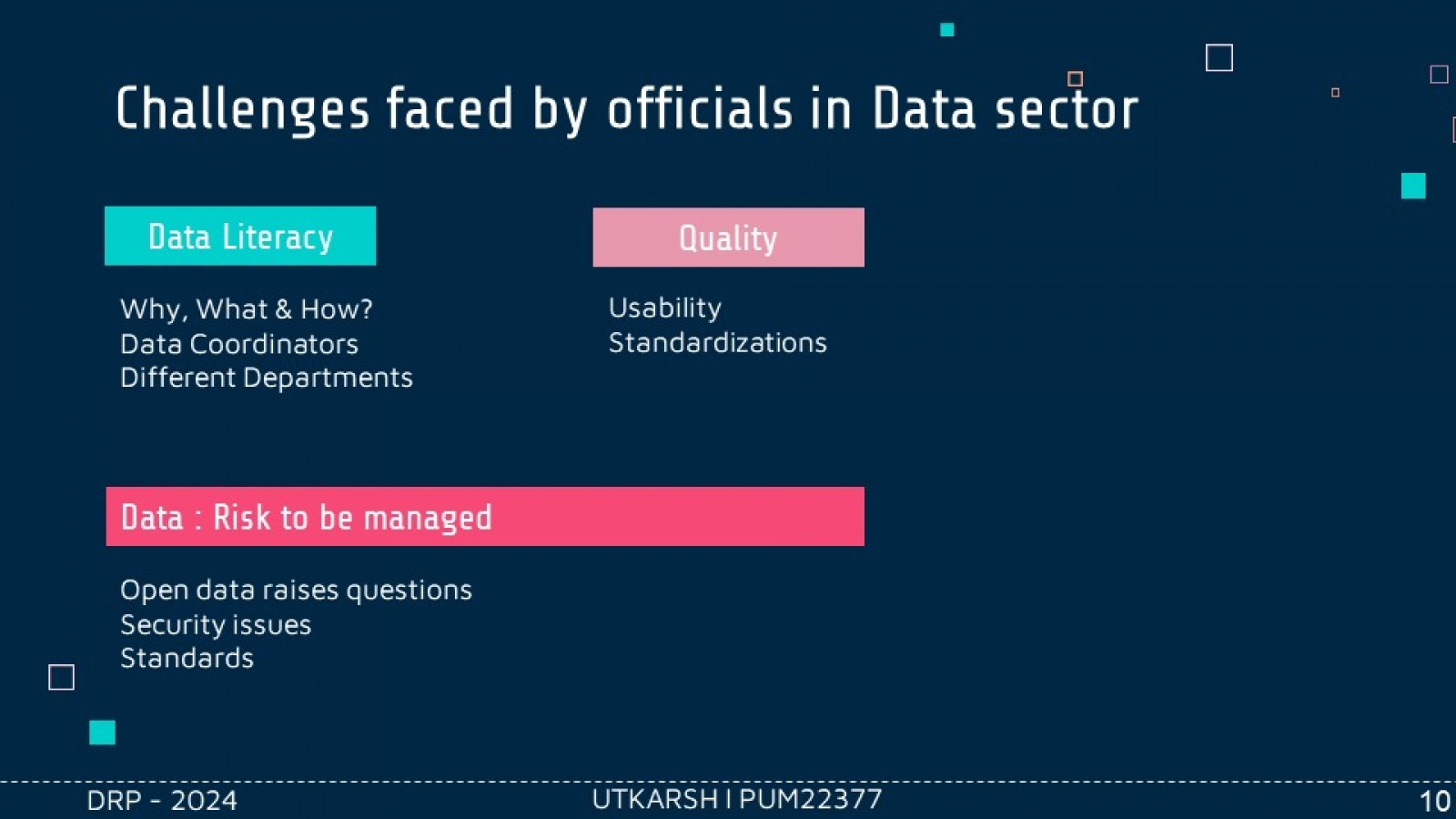Your browser is out-of-date!
For a richer surfing experience on our website, please update your browser. Update my browser now!
For a richer surfing experience on our website, please update your browser. Update my browser now!
India is on a significant journey towards transforming urban governance through data-driven decision-making. One of the major steps was India Smartcity Mission, the mission initially embraced a decentralized model, granting cities flexibility in data practices. However, this approach, while fostering local adaptation, led to inconsistencies and hindered collaboration between cities. Recognizing these limitations, the mission is undergoing a strategic shift towards a more centralized approach. Initiatives like the Data Maturity Assessment Framework (DMAF) and national data sharing platforms such as Smartcity open data portal (SCODP) and the Assessment and Monitoring Platform for Livable, Inclusive, and Future-Ready Urban India (AMPLIFI) are instrumental in promoting standardized data practices across cities. Additionally, the DataSmart Cities Initiative (DSC) plays a crucial role in fostering collaboration and knowledge sharing. However, the mission acknowledges that achieving success requires striking a balance between standardization and local adaptation. India's evolving approach recognizes the diverse needs and contexts of cities across the nation. The introduction of the Urban Outcome Framework (UOF) signifies this commitment, as it facilitates a comprehensive evaluation of city performance. Furthermore, the integration of Integrated Command and Control Centers (ICCC) in all smart cities highlights the mission's focus on utilizing data for informed decision-making, is also a major step. The research on city performance between DMAF 2 and DMAF 3 assessments demonstrates the progress made. This trajectory indicates a bright future for India's data maturity and the fostering of a robust data culture within the public domain.
